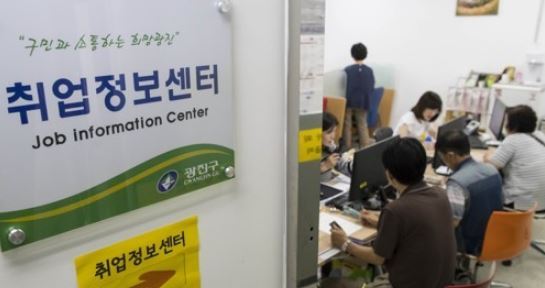Korea still facing challenges two decades after financial crisis
By YonhapPublished : Nov. 19, 2017 - 09:50
In 1997, South Korea was hit by a regional financial crisis, which the majority of people here still remember as one of the worst experiences in the country's recent history.
Twenty years later, South Korea's economic fundamentals have greatly improved, with its exports and foreign exchange reserves reaching record high levels, but job insecurity and widening income disparity have become chronic problems, experts said Sunday.
South Korea managed to revive its economy with the help of a $58 billion financial assistance package arranged by the International Monetary Fund, yet this left tens of thousands of workers jobless.
According to a recent survey conducted by the state-run Korea Development Institute, 57.4 percent of South Koreans think that the 1997 crisis was the most difficult period for the country's economy in the last 50 years. The survey was conducted on 1,000 people aged 19 or older nationwide from Oct. 23-26, with a margin of error of plus or minus 3.1 percentage points.
Among them, 31.8 percent said the crisis intensified the income disparity and polarization of wealth in the country, and another 28 percent picked the high unemployment rate as a negative legacy.
Indeed, the regional financial turmoil is often called the "IMF crisis" in South Korea, as many believe the drastic economic reforms that came with a bailout package resulted in massive restructuring in all areas of society.

Going through the crisis, flexibility became a core value in running a business, and firms increasingly opted for temporary workers who they could dismiss more easily over permanent employees.
When the crisis was over, there was no longer such a thing as lifetime employment that had been the norm in the past.
People began to self-mockingly say that the retirement age is now 45, or that it would be unconscionable for people to try to keep their position at a company until the age of 56.
The unemployment rate for young people -- those aged between 15 and 29 -- hit a high of 8.6 percent in October, numbers that were rarely seen since the country began modernizing in the 1970s.
Now the popularity of stable jobs, such as that of a school teacher or a government official, is higher than ever.
This year, a record 172,000 applicants took the state exam to become a ninth grade civil servant, the lowest level in the hierarchy of public officials.
The country's income disparity, meanwhile, continued to widen.
Those in the top 20 percent income bracket made nine times more than those in the bottom 20 percent in 2016, according to the data compiled by Statistics Korea.
Last week, the country's top economic policy maker said the disparity has restricted domestic demand and economic growth, calling for cooperation from the business sector to resolve the issue.
Reflecting on the need to push for change, the new Moon Jae-in administration is pushing for a number of measures aimed at narrowing the income gap and boosting private consumption.
The government maintains that income-based growth that can bolster consumption is the only sure way to sustain growth.
In July, the government decided to raise the minimum wage by 16.4 percent to 7,530 won ($6.85) per hour next year, marking its biggest jump in nearly two decades. (Yonhap)








![[Graphic News] More Koreans say they plan long-distance trips this year](http://res.heraldm.com/phpwas/restmb_idxmake.php?idx=644&simg=/content/image/2024/04/17/20240417050828_0.gif&u=)
![[KH Explains] Hyundai's full hybrid edge to pay off amid slow transition to pure EVs](http://res.heraldm.com/phpwas/restmb_idxmake.php?idx=644&simg=/content/image/2024/04/18/20240418050645_0.jpg&u=20240419100350)






![[From the Scene] Monks, Buddhists hail return of remains of Buddhas](http://res.heraldm.com/phpwas/restmb_idxmake.php?idx=652&simg=/content/image/2024/04/19/20240419050617_0.jpg&u=20240419175937)

![[KH Explains] Hyundai's full hybrid edge to pay off amid slow transition to pure EVs](http://res.heraldm.com/phpwas/restmb_idxmake.php?idx=652&simg=/content/image/2024/04/18/20240418050645_0.jpg&u=20240419100350)

![[Today’s K-pop] Illit drops debut single remix](http://res.heraldm.com/phpwas/restmb_idxmake.php?idx=642&simg=/content/image/2024/04/19/20240419050612_0.jpg&u=)